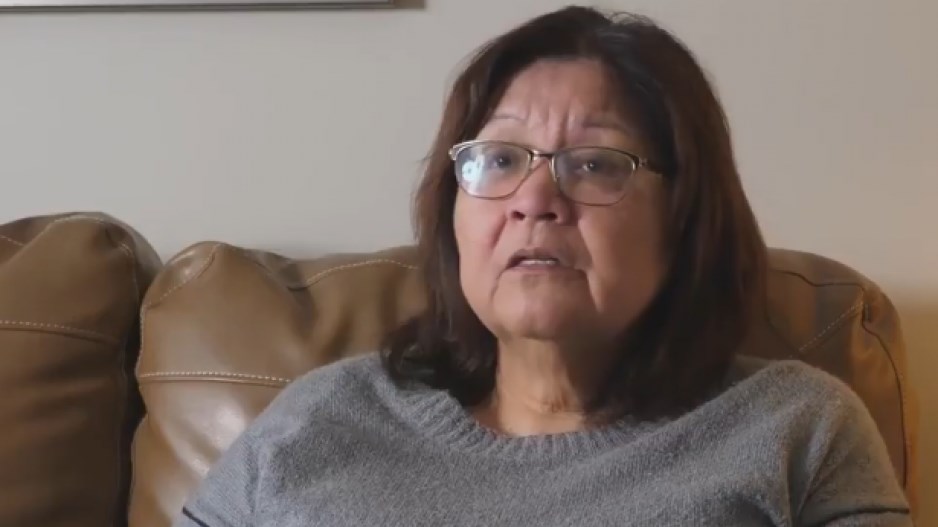COVID-19 prevention measures and a recent death within the Wet’suwet’en First Nation will likely mean a postponement of community meetings and votes on an offer by senior governments to recognize Wet’suwet’en rights and title, according to band members.
And that is a relief to some Wet’suwet’en leaders who fear a ratification process is being rushed and, as a result, could get voted down by some clans.
On February 26, federal and provincial ministers announced that they had made an offer to hereditary chiefs of the Wet’suwet’en to recognize and implement Wet’suwet’en rights and title. The offer came at a time when rail blockades and protests were being held in support of Wet’suwet’en hereditary chiefs who oppose the $6.6 billion Coastal GasLink pipeline.
At the time the deal was announced, hereditary Chief Frank Alec (Woos) said it would take a couple of weeks to get the agreement out to the community to explain it.
And while some meetings have been held with some of the five Wet’suwet’en clans, any further meetings may be cancelled, due to prevention measures being taken in light of the COVID-19 virus.
“All the meetings have been postponed until further notice,” said Bonnie George, a former Witset (Moricetown) band councillor and member of the Laksilyu (small frog) clan.
In a letter to the Wet’suwet’en First Nation elected band council, the Office of the Wet’suwet’en said it is reducing or cancelling gatherings and travel, said Karen Ogen-Toews, an elected band councillor, member of the Gitdumden clan and CEO of the First Nations LNG Alliance.
“They were supposed to come back to our community on March 19, but I think with all the virus issues it’s cancelled,” she said. “We’re not having meetings or any outside people coming in.”
The Office of the Wet’suwet’en did not respond to questions from Business in Vancouver, though the office’s website does have a notice confirming that board and staff travel will be limited and that large gatherings could be affected.
Even without the COVID-19 measures, a recent death in Witset should mean a delay of large gatherings, George said.
“When there’s a death in our community, everything is at a halt, or it should be at a halt,” she said.
Both women say a delay in ratifying the agreement is welcome because there are serious concerns around governance issues to be addressed first. To date, George said the only information see has seen about the proposed rights and title offer is a PowerPoint presentation.
“We barely even skimmed the document,” George said. “It’s such a huge document, we can’t just look at it in a few weeks and decide on it.
Elected band councillors feel they have been largely left out of the decision-making around something that could have serious impacts.
There are 13 houses within the Wet’suwet’en, but there a number of house chief vacancies. And there is some question over the legitimacy of some of hereditary chiefs who received titles after female hereditary chiefs were stripped of their titles for supporting the Coastal GasLink pipeline project and pushing for governance reforms.
“You’ve probably heard about some of the chiefs, whether they’re legitimate or not,” George said. “One of my concerns is, if we go ahead and sign this document with the names at hand, would it still make it a legit document, and is the Wet’suwet’en still accountable to those signatories? We need to do a housecleaning of our potlach system before we embark on such a process.”
There have been murmurs within the community that some of the clans may reject the proposal.
The Office of the Wet’suwet’en was set up to represent the hereditary chiefs in things like treaty negotiations, for which it received government funding. But the Office of the Wet’suwet’en pulled out of treaty talks a few years ago.
Ogen-Toews said that, according to the Office of the Wet’suwet’en constitution, there are supposed to be six seats for elected band councils.
“They have never invited us to their table yet they continue to get funds on our behalf,” she said.
She said she would be happy to see any ratification process on the rights and title offer slowed down.
“I don’t get why they’re rushing this,” she said. “This is a huge deal that’s going to impact every one of us. It seems like they’re pushing the feds and the province to fast-track this deal and try to get it approved right under our noses. And I don’t agree with this whole process.”
Ogen-Toews thinks an agreement of such importance should be ratified through a process that gives all 5,000 members of the Wet’suwet’en a chance to vote, similar to the process used to ratify a treaty. And she thinks that both the Office of the Wet’suwet’en and senior governments need to acknowledge that elected chiefs and band councillors should have a seat at the table.
“As far as I’m concerned, until the Indian Act gets amended or abolished, we’re still going to be here. We are the legal jurisdiction for our community. I take my job seriously, and the well-being of our community is paramount. And I just can’t see our handing over everything to the Office of the Wet’suwet’en.
“Maybe this virus is to our advantage to sort of slow this process down, because I can’t see our community in the hands of the OW.”




